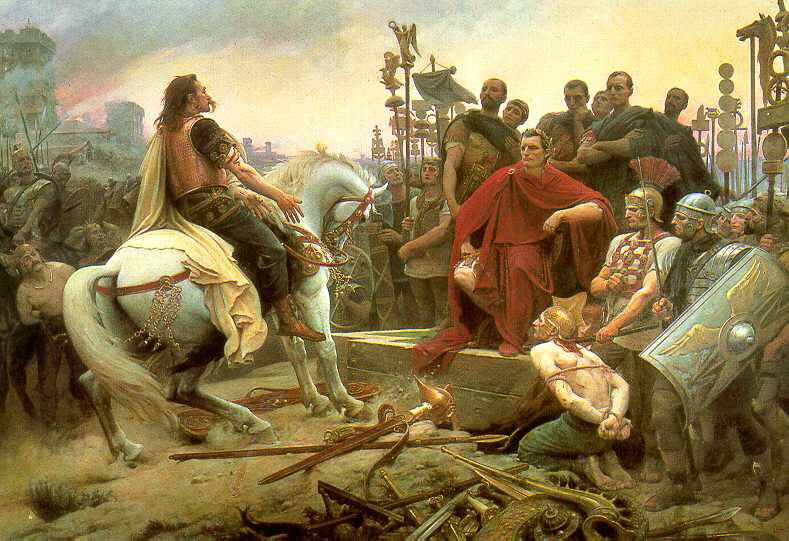XVIII - “They're out to get you ” “
You close your eyes
And hope that this is just imagination
But all the while
You hear a creature creepin' up behind
You're outta time”
Michael Jackson / Rod Temperton (1982)
(1110-1115)
You close your eyes
And hope that this is just imagination
But all the while
You hear a creature creepin' up behind
You're outta time”
Michael Jackson / Rod Temperton (1982)
(1110-1115)
The alliance with the neighbouring empire of Byzantium was the source of many developments which historians have long debated about. Thankfully, in these days it’s not necessary to establish if they were “positive” or “negative”: they are simply facts.
The Imperial Court, now controlled by two technocratic minds, was absolutely centered in maintaining stability until a new Emperor was enthroned: every ounce of gold was dedicated to buying off rebellious-minded dukes, while Nicholas’s health dribbled away in seclusion and his succession was still undecided. This left the military angle in the hands of aggressive, ambitious frontier lords, and every candidate to the Throne took advantage of the lack of leadership to enlarge his opportunities by enlarging his glory and his lands.
In short, while in internal affairs of the Empire were almost peacefully sordid, the following years saw a new wave of foreign aggression, parts of it completely out of Imperial control.
Of course, this view has not always been prevalent. Different schools have tried to blame a crazed Nicholas with a frenzy of pagan destruction (or praise him for it), but it seems clearly established that from 1110 onwards he lived on opium tincture and only rarely took active part in the management of the state.
A hunger for land
In March 1111, the latest uprising in Iberia, led by the Duke of Cuenca, was finished with the complete annexation of his lands into the Imperial real, from which they were eventually redistributed to loyal counts. On the Eastern Front, the Imperials fought the Cuman with mixed success, subjugating chiefdoms almost one by one and dictating terms.
Those terms were harsh. The Cuman vassals were forced to kneel before the Germanic and West Slavic conquerors, switching allegiances and bringing into the Empire a vast slice of land that went around the Black Sea and into the territories that once were the Kingdom of Georgia. By 1113, and despite frequent trouble with his levies, the Imperial regiments had turned the northern Black Sea into a loyal realm. In June, the Cuman armies were dismembered and their royal domain finally occupied. In June 25th, the King of Cuman formally surrendered in a ceremony that was later painted in Neoclassical, romanised idealization Franscisco Vázquez.

It goes without saying that the imperial figure was not at the time fit to receive any surrenders in the middle of the steppe. The actual surrender was done to Juan de El Even, the Duke of Bohemia, who was in turn rewarded by Nicholas (or his warders) with the four counties of Tmutakaran, Crimea, Teresbovl and Korsen.
But the Emperor kept such lands as Kiev and its surrounding, and when the Imperials subdued the rebellious Prince of Cherson in late June 1113, his titles and land were torn from him too.
The Crusade
While up to that time the Empire had taken very little heed of the Crusades, in the Summer of 1113 the Emir of Jerusalem tried to seal a formal peace. This seems to have been about the largest blunder in recorded history.
As the Imperial copyists have recorded it, Nicholas was awake and actually sat on the throne for the Muslim emissary. Something either in the diplomat’s words or in the translation incensed him (what it was, we can only guess, for he was unintelligible in his anger) and the result was a sweeping change of policy. There would be Crusades.
The Court (and that meant the de Lusignans and their new ally, the spymaster Raolf von Wurtemberg) supported them too, as a cheap means of ridding the Empire of the most enthusiastic warmongers. By November 1113, the whole Catholic part of the Empire was in arms, with every nobleman recruiting and most able-bodied men under arms.
1114 was almost uneventful on the mainland (barring some Iberian turmoil and the continuous drop of ducal extortions), as even the most disloyal Dukes (such as Sigfried Muffin of Saxony) had their regiments under sail, or trekking overland, to Outremer. The biggest landfall didn’t happen until October 1114, when a landslide of armored crusaders (over thirty regiments raised and led by their own lords) crushed the Emirate of Jerusalem and its vassals, but by year end vast armies were still half-way en route.
By January 1115 only Jerusalem proper remained in Emirate hands, and no Muslim country attempted to help them. By January 1116, the Pope called off the Crusades with their goal accomplished.
It is plain that nobody was sorrier of this swift conclusion than the De Lusignans.
Last edited:



















